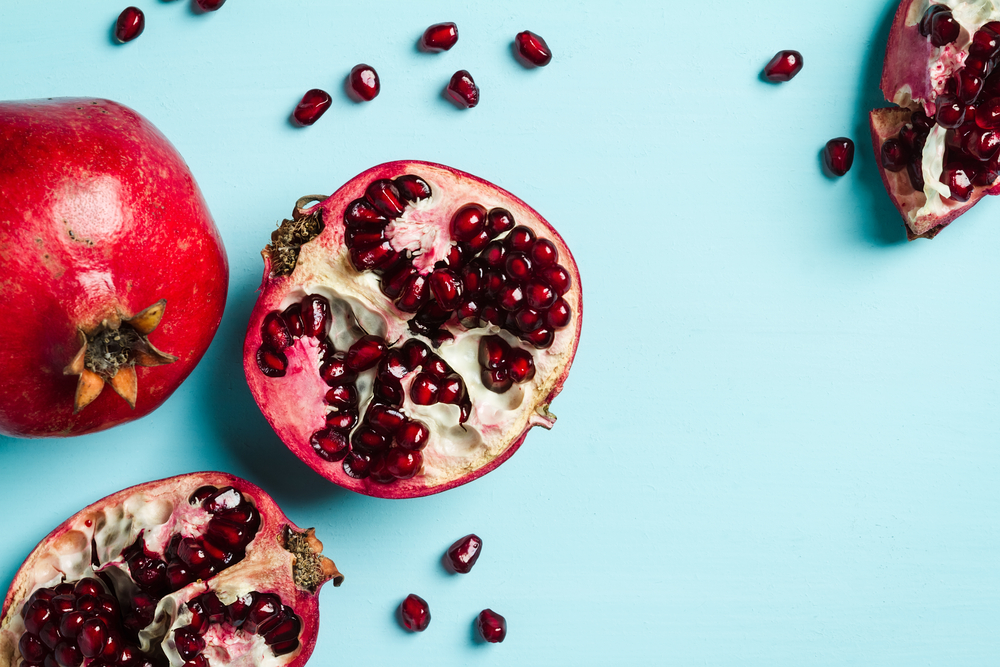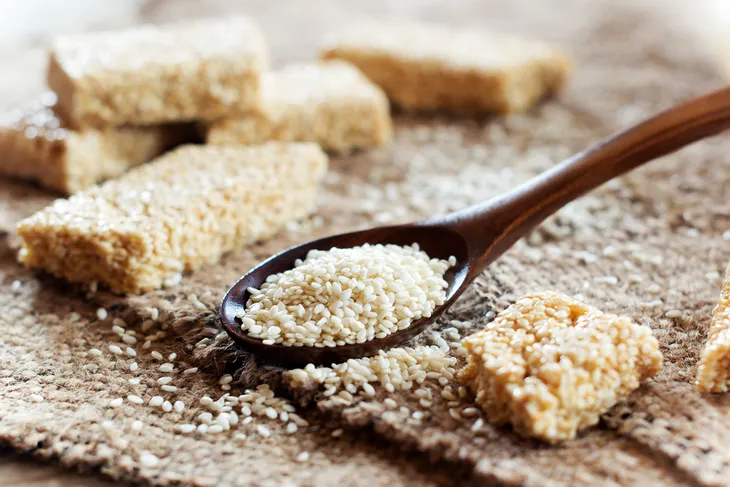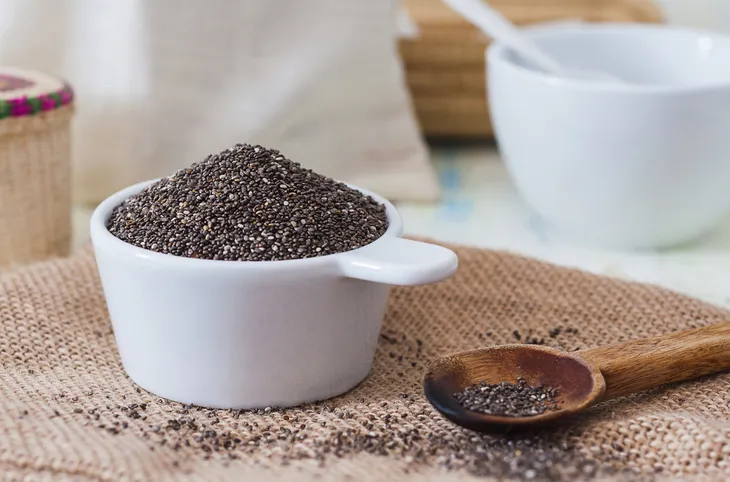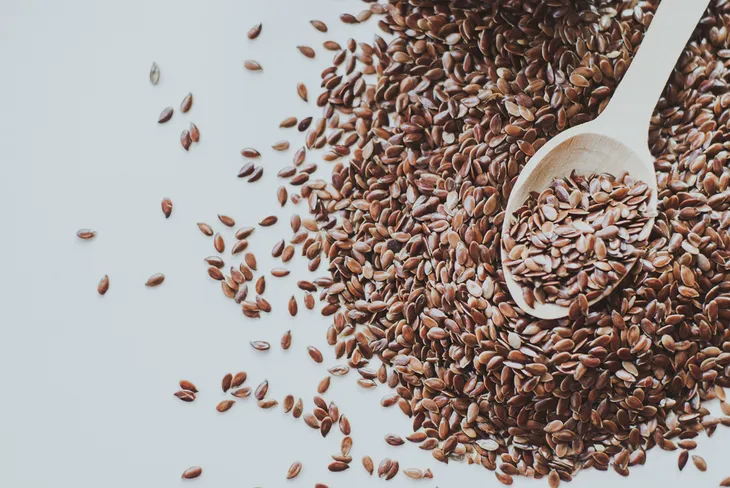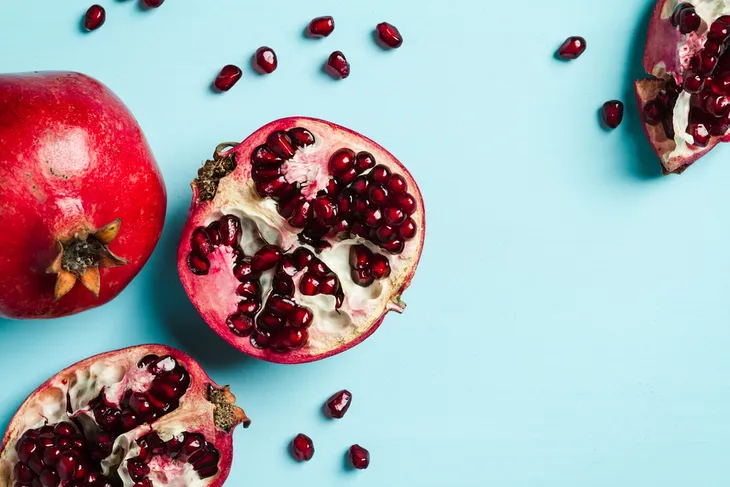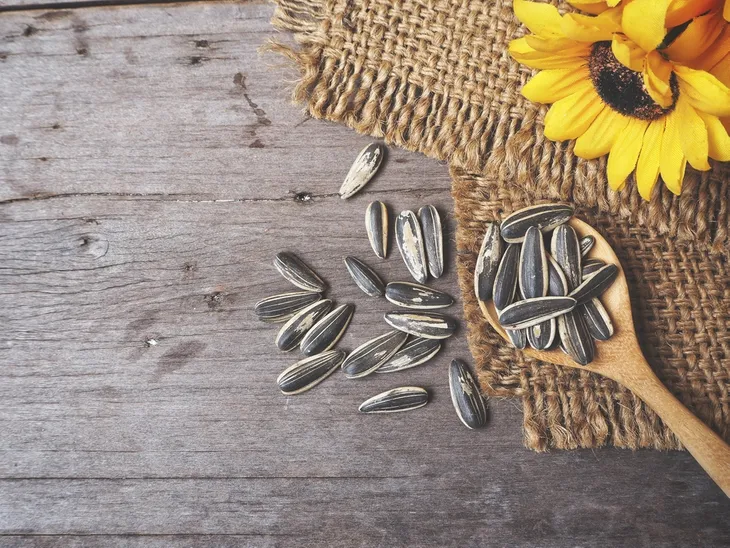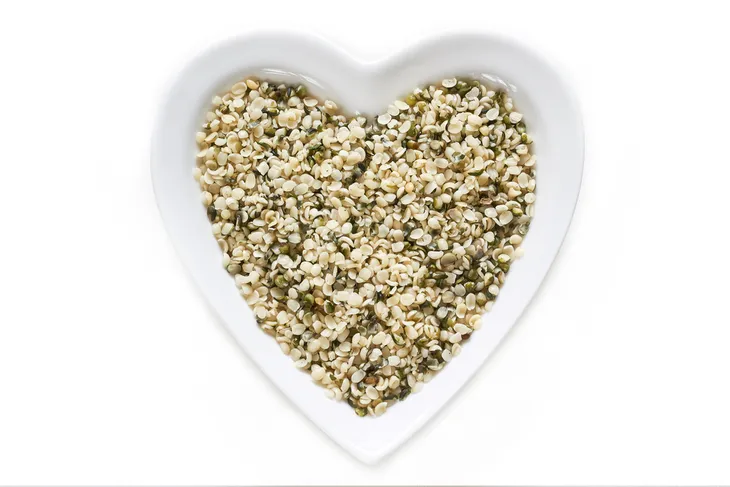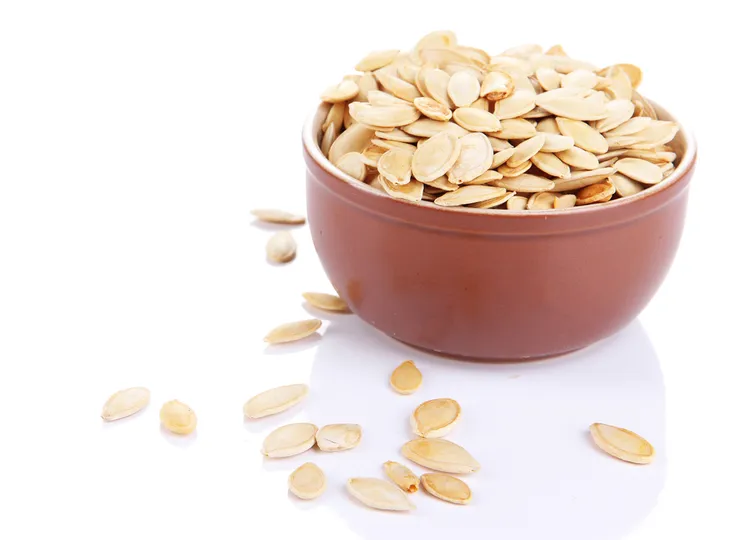When it comes to super foods, these seven seeds offer an array of protein, vitamins, and antioxidants that boost bodies and prevent chronic diseases to boot! Plus, seeds blend so seamlessly into salads, sauces, cereals, baked goods, and beverages that there are plenty of ways to take advantage of their numerous nutritional benefits…
Sesame Seeds
Sesame seeds are rich in a heart-healthy omega-6 fatty acid, known as linoleic acid. Adding a few tablespoons of this beneficial (and crunchy) acid to your salad protects the heart by regulating harmful cholesterol (or LDL cholesterol), which builds up plaque within blood vessel walls and blocks arteries, causing a disease called atherosclerosis.
An Iranian study published in The Scientific World Journal, credits the anti-hyperlipidemic effects of sesame with protecting the heart. However, further studies point to sesame seeds as a rich source of zinc, which is a source of zinc, which improves sexual function, sperm production, and testosterone levels in males.
Chia Seeds
Ch-ch-chia seeds not only offer up a nutty irresistible crunch—they also help build strong bones. And if you don’t eat dairy, either for preference or intolerance/allergy reasons, chia seeds offer about as much calcium as a slice of cheese in just 2 tablespoons.
Chia seeds are also high in magnesium (another bone boosting nutrient) and heart-healthy omega-3 fatty acids. Start your day with a sprinkling of chia in your almond milk smoothie. Blend with a handful of greens and some frozen fruit.
Flaxseeds
If you tend to suffer from mid-morning hunger cravings, even after eating a hearty breakfast, try incorporating flax seeds into your AM meal. Flaxseeds are a rich source of soluble fiber, which satiates you for longer while lowering bad LDL cholesterol.
According to research from the American Institute for Cancer Research (AICR), high levels of omega-3 fats and lignans in flaxseeds are attributed to boosting vision health and protecting the body from developing certain cancers, including ovarian, prostate, and breast cancer.
Pomegranate Seeds
Laboratory tests from the University of Maryland Medical Center, show that pomegranate seeds contain antiviral, antibacterial, and antioxidant properties. The vibrant crimson hue of pomegranate seeds results from their high polyphenol chemical content, an antioxidant that guards against inflammation and cellular damage.
Pomegranate not only delivers a tangy taste in fruit salads, yogurt parfaits, and on toast with nut butter, it’s also rich in vitamin C, which has been linked to weight loss and better immune function.
Sunflower Seeds
You might not understand just how beneficial munching on a handful of unsalted sunflower seeds can be for your health. You can practice your spitting aim and get a daily dose of immune-boosting folate and antioxidant rich vitamin E with just 2 tablespoons of sunflower crunch on your cereal or salad.
According to researchers at Psychology Today, a handful of the all-American snack provides a huge nutritional punch—delivering up to 75-percent your recommended vitamin E daily intake as well as considerable soluble fiber, folic acid, and protein.
Hemp Seeds
No, don’t reserve hemp seeds just for Grateful Dead fans. Sure, the vegan and vegetarian sect might favor this seed because it provides a beautifully pure source of protein. However, it also packs all 20 essential amino acids.
In fact, pharmacology researchers at the University of Seville discovered that the high ratio of polyunsaturated to saturated fats in hemp seeds was able to reduce cholesterol levels and plaque on artery walls (atherosclerosis) with a strong potential to protect against heart disease.
Pumpkin Seeds
If you need a little pep in your step during the morning hours, pumpkin is your seed! Pumpkin seeds are like Nature’s energy pill—the seeds are rich in iron—which helps maintain energy levels—vitamin B, zinc, protein, and magnesium.
Studies also show that pumpkin seeds are rich in tryptophan, an amino acid that gives you that post-thanksgiving calm (some call it food coma). However, research published in 2007, in the Canadian Journal of Physiology and Pharmacology, found that pumpkin seeds help lower anxiety levels thanks to their heavy tryptophan content. And since this feel-good melatonin and serotonin are formed from tryptophan, those who munch pumpkin seeds tend to experience less stress and enjoy higher levels of mental well being.
